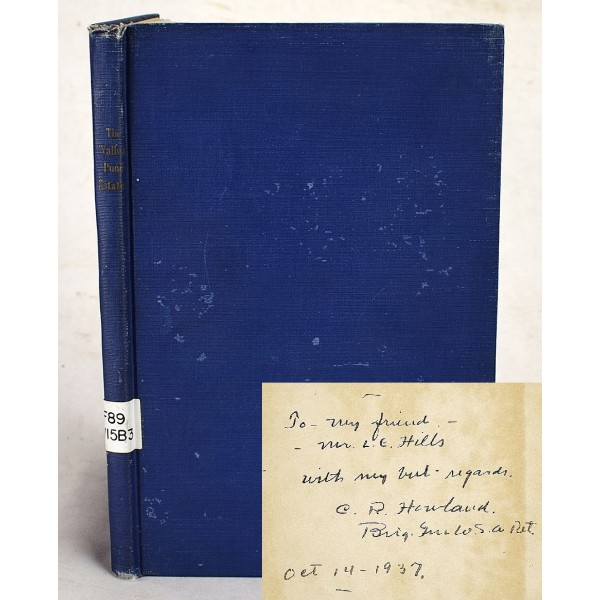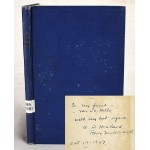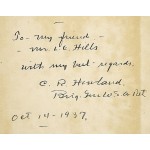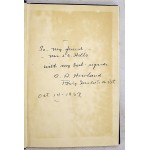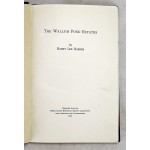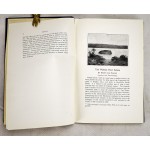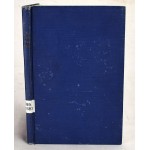The Wallum Pond Estates
The Wallum Pond Estates
Harry Lee Barnes; Charles Roscoe Howland
Rhode Island Historical Society, 1922
Inscribed by Brigadier General Charles Roscoe Howland on front end page. From the library of the Mayflower Society. Bound in blue cloth. Hardcover. Library stamps and markings. Shelf wear. Plate loose.
"Charles Roscoe Howland (1871-1946) had a distinguished career in the United States military and was the author of several books on military and political history. Born in 1871 in Jefferson, Ohio, Howland was the son of Judge William P. and Esther Howland. In 1890 he enrolled in Oberlin College but in the following year won an appointment to study at West Point. Graduating in 1895, Howland began his military career as a 2nd Lieutenant. Between 1899 and 1902 he served as aide-de-camp to Major General Lloyd Wheaton in the Philippines, where Howland won promotions and a number of decorations, including the Medal of Honor. Between 1903 and 1905 he served on the West Coast, for a time as an aide to Major General Arthur MacArthur. In 1907 Howland was appointed a judge advocate of the Army and made a significant contribution to military jurisprudence by writing A Digest of Opinions of the Judge Advocate General of the Army, to guide commanders distant from Washington, D. C., in court martial procedures. Howland received his L.L.B. degree from National University Law School in Washington, D. C. in 1909 and an honorary A. M. from Oberlin College in 1912. In 1914 he continued his career in military jurisprudence as commander of the disciplinary barracks at Alcatraz Island, leaving that post in 1917. During World War I, Howland commanded an infantry regiment in France and Germany from 1918-1919. After the war, he enrolled in the General Service School and the Army General Staff School, eventually becoming an instructor there. His interest in military history and scholarship were soon manifested in his second book, Military History of the World War (1923). After serving in the Canal Zone for three years (1923-1926) and graduating from the Army War College in 1926, Howland commanded several army forts in the West and Southwest from 1927 until his retirement from the Army as a Brigadier General in 1937. Retirement from the Army provided Howland with more time for writing. In 1940 while living at the Army and Navy Club in Washington, D. C., he wrote "The Road to One Man Rule," which was never published, and in 1946 completed A Brief Genealogical and Biographical Record of Charles Roscoe Howland, Brothers and Forebears, which attempted to prove his descent from John Howland, a Mayflower Pilgrim. Howland moved from Washington, D. C. in 1942 and resided in the University Club in Cleveland, Ohio, until his death in 1946. He was buried in Arlington National Cemetery."
Founded in 1897, the Mayflower Society, or General Society of Mayflower Descendants is a non-profit organization. Membership requires proof of lineage from one of the passengers who traveled to America on the Mayflower in 1620. Their educational mission includes telling the story of the Pilgrims as well as maintaining the highest standards possible for genealogy research into the lineage of the Pilgrims.
